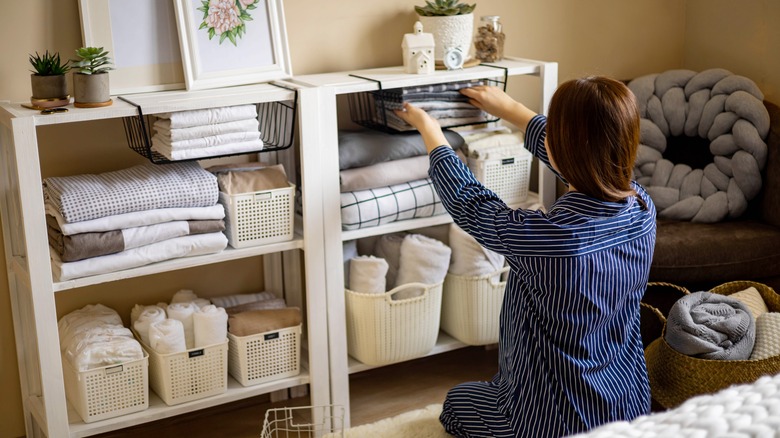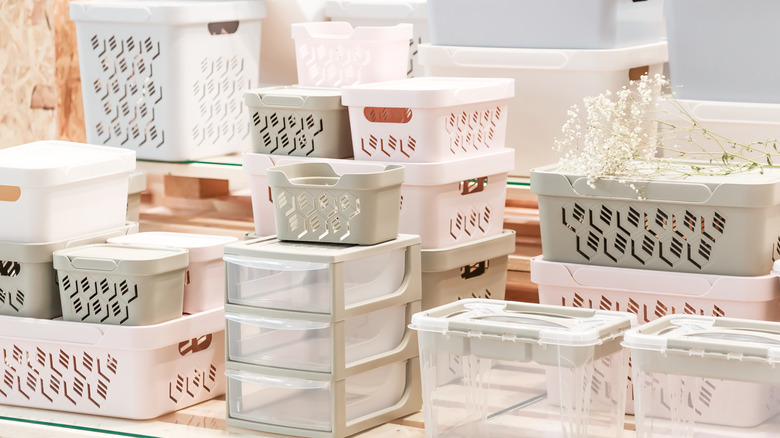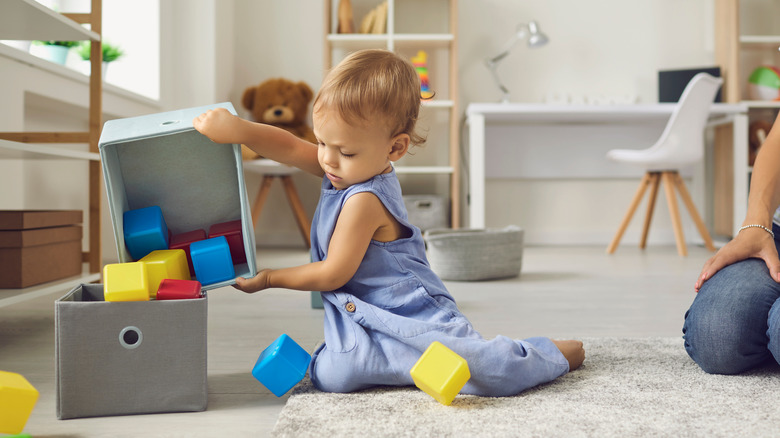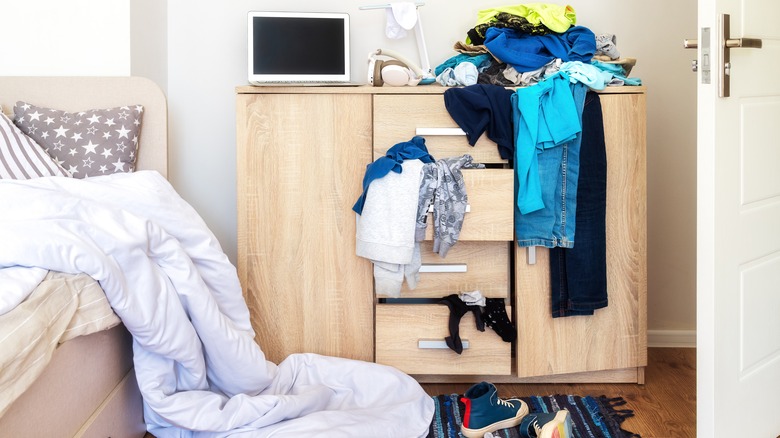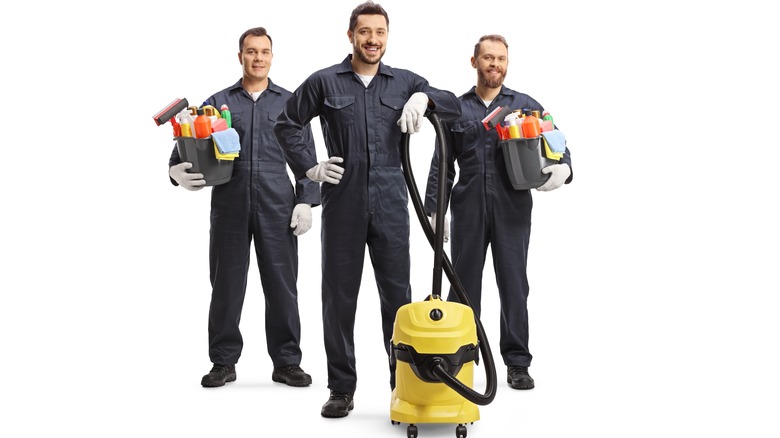How To Finally Deal With Overwhelming Clutter, According To An Organizing Expert
Clutter is a major force in everyday life. The New York Times reports that clutter and stress go hand in hand, leading many homeowners who battle with a messy household to also fight a concurrent battle against a heaving mental load and all the strain that comes along with it. It's perhaps for this reason that spring cleaning has survived as a ritualistic performance each year (whether undertaken in spring or another time during the year). No matter when you elect to tackle extreme clutter built up in your home — or if you've allowed this to go on unattended for several years — doing something meaningful about clutter can positively impact your mental state and your home. Still, knowing where to begin when facing off against a cluttered home can be challenging.
In an exclusive interview with House Digest, professional organizer Jen Weintraub, the founder of Splendid Spaces Organizing, lays out some of the fundamentals homeowners should focus on when organizing a house overflowing with clutter. It can be a daunting process, but Weintraub notes that some of the keys to success here lie in the preparation work that comes before putting things away or throwing out old items that no longer provide value to your life and home.
Don't buy storage before you start
Weintraub offers up a suggestion that might seem counterintuitive for her starting point. She says, "My first tip is actually a don't: Resist the urge to buy baskets and bins at the start of the process." While it might sound foolish to go into the battle against clutter without the proper storage armaments, Weintraub offers a powerful explanation for this approach. She continues by saying, "This is a common mistake because buying those items is fun and makes you feel like you're making progress. Without decluttering first, you can waste time and money buying the wrong organizing products."
Much of the work of decluttering falls within the realm of organization. Some of your belongings retain no real value and should be thrown away, others will be necessary to keep, and a home for them needs to be found. If you engage with the cleaning process before purchasing storage containers, you can react in a fluid manner when discarding items. When the time comes to put away what's made it through the whittling stages, then you can think about storage.
Set yourself up for success by categorizing
Weintraub continues in her advice, noting that categorization goes hand in hand with the previous suggestion. She says, "Group like things together so that you can see what you have. This sometimes means going into other rooms to collect like items." Once again, it is clear that the process of decluttering revolves around clarity of vision. Combining similar items allows you to see the whole of your decluttering endeavor from a top-down perspective, making sense of the home's items in a more comprehensive manner.
She continues, "Once everything is categorized, declutter one group of items at a time (for example, dress pants or pots and pans). This will help keep the process manageable and help you not give up before you even really started." Making meaningful progress rather than simply feeling as if you're moving through the home's mess without any substantial change lies at the heart of Weintraub's advice.
Think about what you actually need
Weintraub continues by focusing on the clearance component of decluttering. Part of the problem homeowners face is a reluctance to remove items from their homes. Only a small percentage of the population are hoarders, but these tendencies (even if they're small) live within all of us.
According to JSTOR Daily, a rise in the immediacy of consumerism through same or next-day deliveries has led to an uptick in the number of individual items people possess. This leads to a routine need to cleanse the household of unnecessary junk — and perhaps marks the functional difference between clutter and true hoarding disorders. Weintraub suggests a level of introspection when approaching this part of the process, saying, "When approaching a group of items, think about what you really need and not about what you might use or are afraid to let go of. Use that information to make some quotas or rules for yourself." She offers, "For example, if you used to dress up to go into an office daily, but now you are hybrid or work exclusively from home, you probably don't need 20 dress shirts. If you go to an office three times per week, consider keeping six shirts so you can set up a two week rotation. A good general rule of thumb for most categories is if you haven't touched it in a year, it's time to let it go."
Consider outsourcing to professionals
The last advice that Weintraub gives revolves around some of the modern offerings that the marketplace has created. "If you are dealing with boxes and boxes of old family photos, for example, you can hire a service to digitize them to preserve them and share them more easily with family." This is a fantastic option for those with large collections of memories stored as developed images. A natural disaster or simple clumsiness can erase generations of memories in one fell swoop. But with digital backups in place, you can reprint old photos or maintain a cloud database of these priceless mementos. Instead of constantly worrying about their security, having a robust backup will allow you to rest easy while clearing up essential living space in your home.
Weintraub notes, "You can also hire a bulk hauling service to come get larger items out of your home. And of course you can always hire a professional organizer to facilitate the whole process." Truthfully, any part of your cleaning can be handled by an outside resource. These services are particularly helpful for the most sentimental homeowners out there. If the thought of throwing away old childhood trophies or donating years-old jeans that you never wear anymore is adding undue stress, leaning on a professional can take the pressure off.
